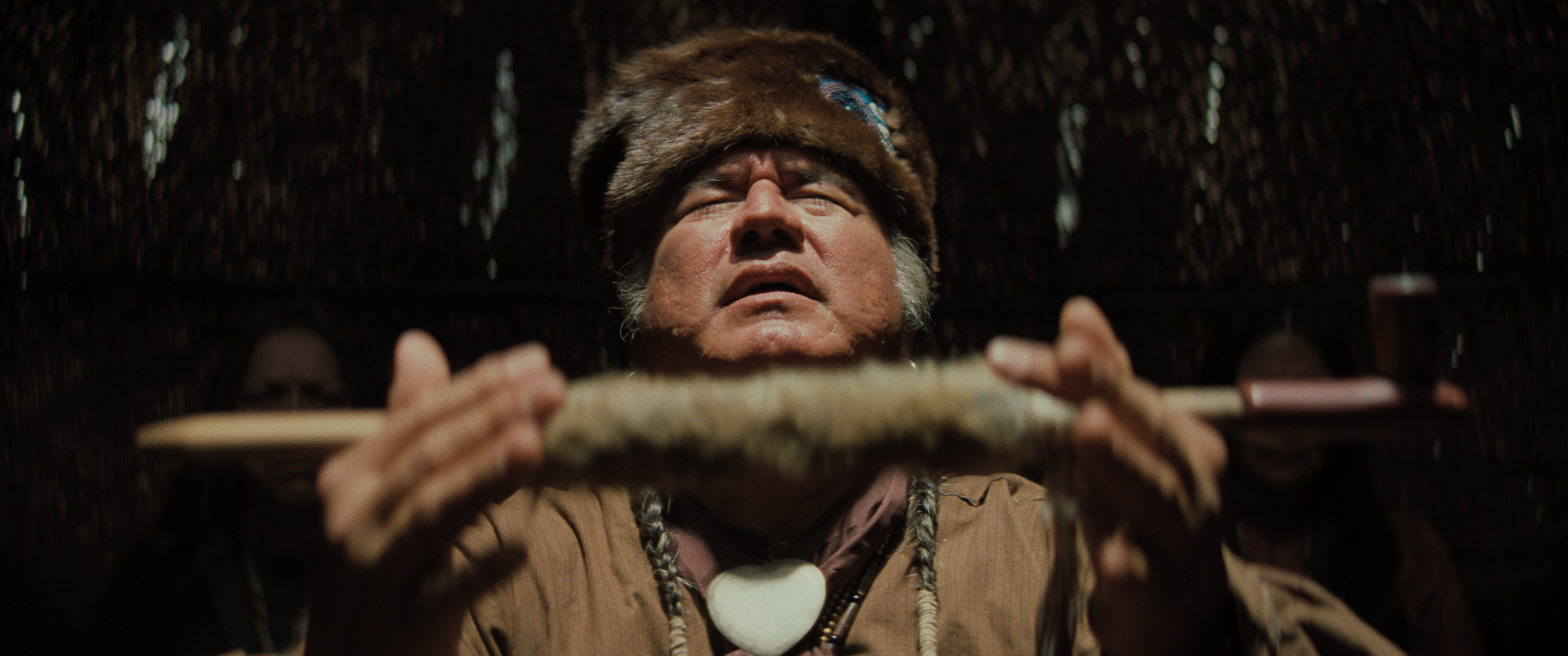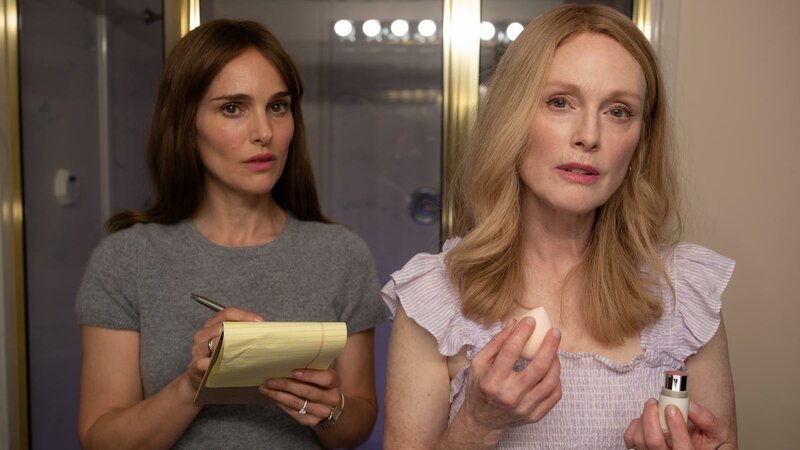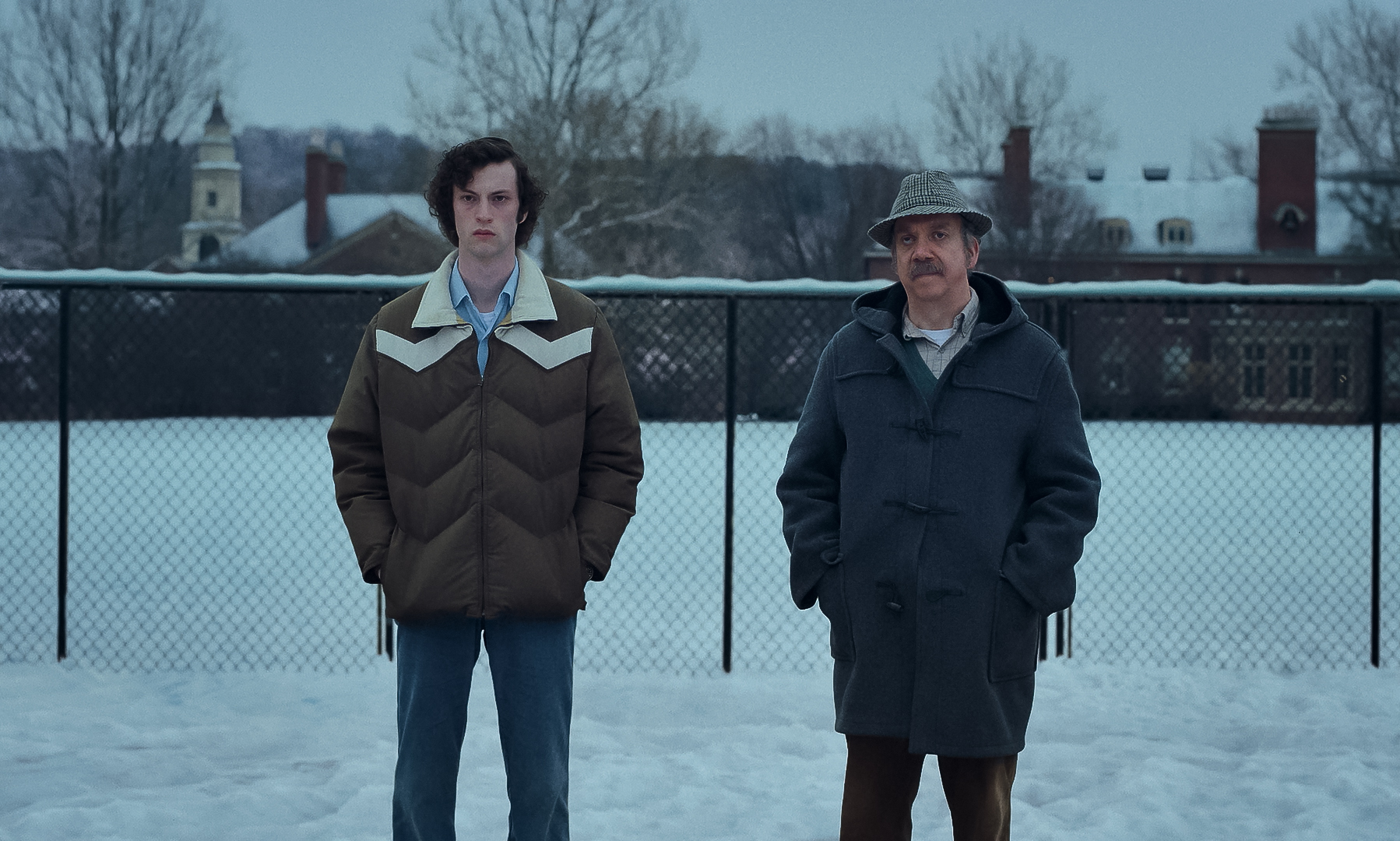Fistful of Worthy Films, Home Viewing for the Holidays
Leading up to the Christmas Break-Timed Release of Major Films, a Round-up of Watchable, Stream-able Films

Leading up to the Christmas Break-Timed Release of Major Films, a Round-up of Watchable, Stream-able Films

Christmas time’s a-coming, and likewise, the annual spate of major, holiday break-timed Hollywood films. Meanwhile, there is a stream-able banquet of small screen cinema worth catching, on demand. What follows is a subjective round-up of several of the better reasons to stay home and snuggle up to the in-house moviehouse.
Spoiler alert: there are no feelgood flicks, per se, in this batch. But all are aesthetically nutritious.

In the golden filmography of director Martin Scorsese, perhaps more than any other American director, his hits far out way the misses. And when we say “hits,” the measure is not necessarily box office receipts but also fringe-ier artistic firepower — i.e. his commercially esoteric but artistically powerful Silence.
At age 81, Scorsese strikes again with his stunning screen adaptation of David Grann’s novel Killers of the Flower Moon, one of his finest in years. The film also represents Scorsese’s habit of exploring areas and subjects away from his comfort zone. Here, he moves far away from the urban and gangster-trafficked mean streets into the tragic tale of Native American exploitation in Oklahoma, circa the 1920’s tragedy of the Osage people’s successive bursts of oil-festooned fortune and murderous white interlopers.
Yes, Scorsese also lavishes our senses with powerful acting turns from frequent collaborators Robert DeNiro and Leonardo DiCaprio — different shades on the evildoer spectrum — but approaches the landscape and milieu with his naturally captivating cinematic panache. With expressive help from cinematographer Rodrigo Prieto, longtime editor Thelma Schoonhaven, and a final score from Robert Robertson, Scorsese’s latest feels somehow at once classic, in his stylistic voice, and freshly baked for the occasion.
In short, it’s one of the great films of the 2023 harvest.
View trailer here.

Some of the more memorable films in the assassin genre are those which tweak or break the rules of said genre. The list includes Jim Jarmusch’s poetic twist with The Limits of Control and the neurotic midlife crisis-afflicted turns in Andrew Dominik’s Killing Them Softly, with Brad Pitt and James Gandolfini as assassins with attitude problems. We can now add to the list the self-evidently-titled The Killer, the latest darkish adventure from David Fincher (Fight Club, Mank). This time out, the assassin narrative includes both a chronicle of the sharp, cunning, and cool killer instinct — standard job requirements, as we know — but also some spinning wheels of vengeance.
Michael Fassbender’s anti-heroic lead role (in a performance which is itself worth the price of admission) moves from a botched job to a rapacious evening up of scores. And, of course, the trail is lined with travels to multiple exotic locals, with false identities aswirl, all choreographed with Fincher’s incisive creative touch. Consider it a whirlwind tour of occupational hazards, rather than a training film, as such.
View trailer here.

Among other salient qualities in the dark suavity of Saltburn, Barry Keoghan, looking like (and behaving like?) a bad boy offspring of Elon Musk, revives his talent for portraying wicked family disruptors. Before the Irish actor gained high-profile status and an Oscar nom for his role as a hapless friend/foil in The Banshees of Inisherin, he embodied a transfixing psychopath in Yorgos Lanthimos’ creepily gripping Killing of a Sacred Deer. Just as Keoghan stealthily tore apart a family’s fabric in that film, he wriggles his way into an assortment of sordid manipulations in Saltburn, on a Machiavellian quest for facsimiles of love, sex (on grave site and off), and obscene affluence.
Actress and director Emerald Fennell, who previously gave us the bitingly affecting feminist triumph, A Promising Woman, tells the Saltburn story with sly stylishness. Chronology and character motivations are craftily twisted as we are pulled into an emotional, blackly comic house of mirrors. In other words: file under head trippy movie going experiences.
View trailer here.

May December, the latest art-infused melodramatic treat from Todd Haynes, might be a candidate for the subtitle “age appropriation.” At its root, the film — among Haynes’s greatest achievements so far — inventively expands upon and ruminates about the true story of Mary Kay Letourneau, who seduced (or consented to, depending on the account) a 12-year-old who became her husband. The relationship was interrupted by her prison stint for statutory rape. In Haynes’s fictionalized account, we join the story as a Hollywood actress pays a visit to the family and town for research, meanwhile becoming more thoroughly entrenched in the realities at hand (and in bed).
If the premise seems tinged by soap operatic dimensions, so be it. But art is the heady twin in the storytelling equation. Haynes has famously been inspired by and has re-channeled the oft noted art-melodrama auteur Douglas Sirk, specifically with the Sirk redux Far from Heaven and more generally in a quirkily personal filmography including Carol, and the odd Bob Dylan escapade I’m Not There (like Carol, featuring Cate Blanchett).
That slippery admix of art film, melodrama, and a deliberate subversion of standardized gender and sexual roles nicely complicates the easy “sound bite” description of May December’s details — also a welcome reversal of the older man/younger woman cinematic trope. Haynes’s film feeds off the impressive, captivating performances by his old pals Julianne Moore and Natalie Portman, with the young studly man-boy husband (Charles Melton, earning accolades and Oscar winks) in the middle. Along the way, Haynes also addresses such issues as the parasitic, killing curiosity of both Hollywood and the media, seizing on sensational stories to sell to a controversy-hungry public. But as usual, Haynes applies a light and semi-detached touch, even in the dark.
View trailer here.

Alexander Payne, a cultural prize outta’ Omaha, Nebraska (and maker of the scrappy-cool Nebraska) knows about the importance of place and context in a story. His roster of places, of course, includes the Santa Ynez Valley’s wine country setting for his classic Sideways, making him an honorary Santa Barbara County legend-on-the-run, whose film actually helped SYV rise in the ranks of the wine world.
Payne narrows the playing field and his dramatic focus with his gruffly comic and surprisingly charming new film The Holdovers, in which the saga mostly unfolds in the neutralized context of a second-tier prep school in New England, where a few key characters are stuck as “holdovers” during the Christmas holidays, ala an episode in Ebeneezer Scrooge’s grim youth. Such an enclosed and hermetic dramatic place setting might seem a challenge, for storyteller and audience alike, but Payne’s unique cinematic gifts prevail and bring the story — and the place — to life.
Among other virtues, the film is a ripe opportunity for Sideways’s Paul Giamatti to shine in his rough-in-the-rough way (not unlike Jack Nicholson’s cynical Omaha retiree galumphing through About Schmidt). Giamatti plays a grumpy, frumpy teacher with a backstory, whose uncompromising demands on students make him the teacher least likely to be loved by the generally spoiled, rich student body. He is also an expert and shameless insult flinger (“fetid little layabouts,” “entitled little degenerates”). On the emptied campus and during a fateful fast trip to NYC, a bond gradually breaks through the interpersonal chill with a particular held-over student, and with a black campus chef getting her due attention in the character department, and life lessons turn into real world consequences beyond the holiday from reality.
Chalk up another one for Payne’s distinguished, witty, and emotionally enriched filmography. This time, he whips up a delectable dark horse variation on the Christmas movie theme. Come to think of it, it also qualifies as a feelgood movie, of a dry, smirking sort.
View trailer here.
Please note this login is to submit events or press releases. Use this page here to login for your Independent subscription
Not a member? Sign up here.
You must be logged in to post a comment.